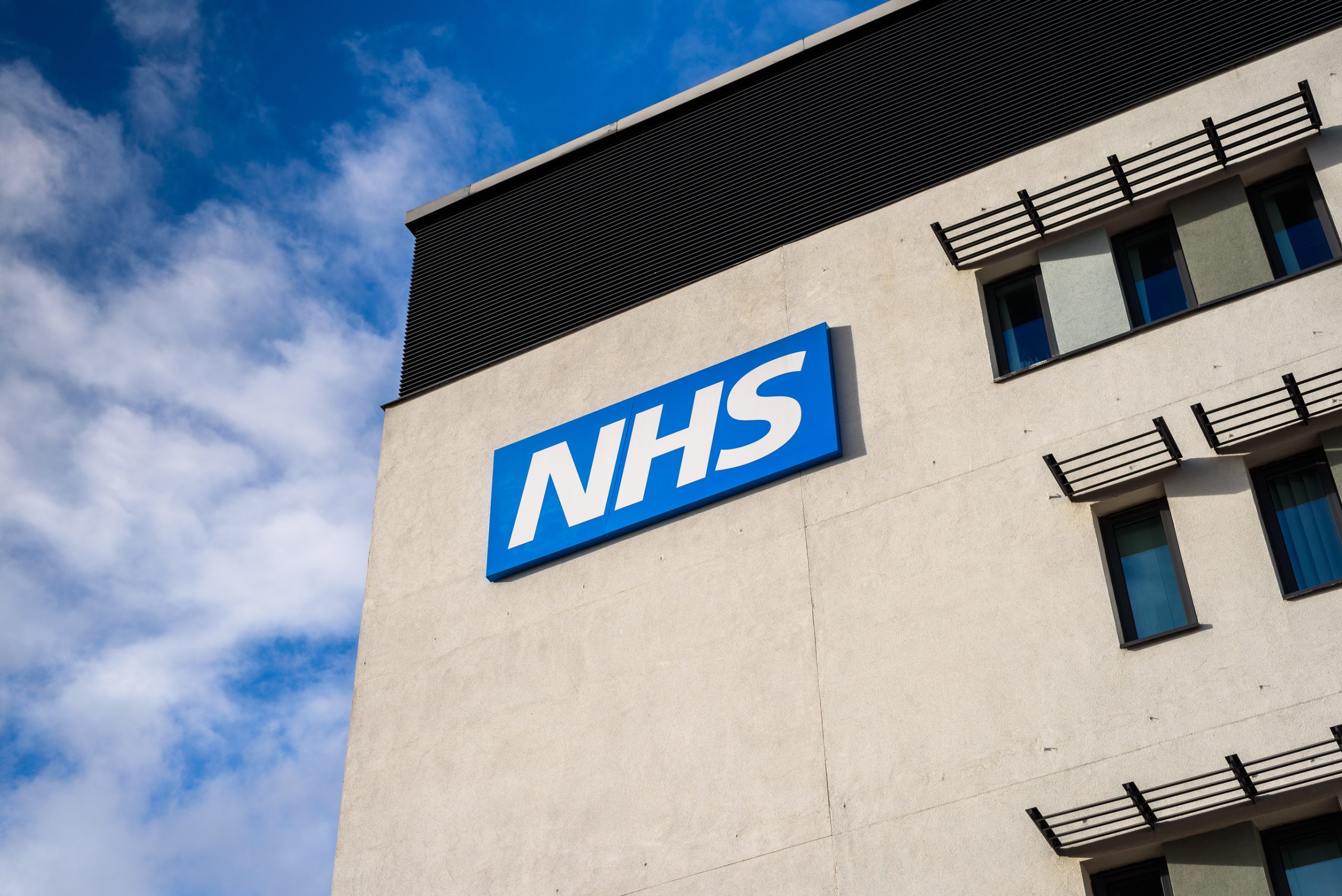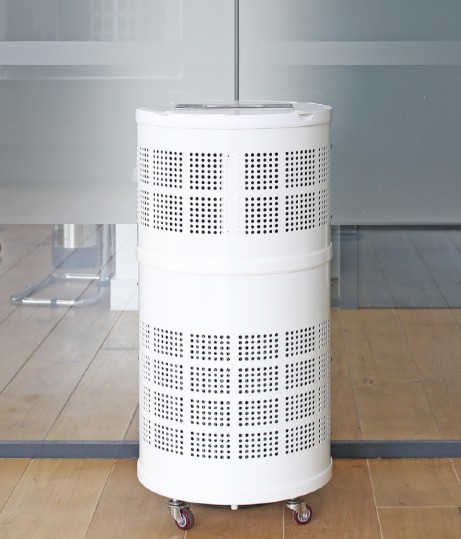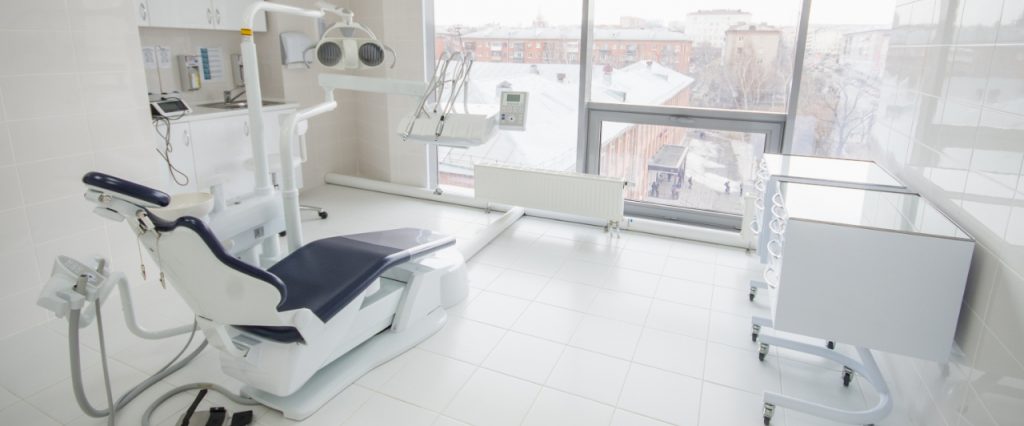Dentists Reduce Fallow Time with Rensair Air Purification

DENTAL PRACTICES: DOUBLE YOUR PATIENT CAPACITY WITH EFFECTIVE AIR PURIFICATION
On the 28 August 2020, the NHS and the Office of Chief Dental Officer England (OCDOE) published updated Standard Operating Procedures for dental practices. They outline different “fallow periods”, or downtime, that practices need to adhere to after an Aerosol Generating procedure (AGP). The recommended fallow period is based on the number of air changes per hour (ACH) that occur in a room.
An effective air purification system will reduce the required fallow period by a third, allowing for a doubling of a practice’s daily patient capacity, and thus dental fees that it can charge in a day.
The cost benefit is extremely skewed in favour of having an effective purifier in place, with a quick return on investment in an effective air purifier.
DOWNTIME / FALLOW PERIODS
The guidelines state that:
Post AGP downtime or “fallow period” only applies after the operator has undertaken an Aerosol Generating procedure (AGP).
Post AGP downtime is not required if the patient has tested negative for COVID-19 within the last 72 hours and has self-isolated
As a guide, most dental surgeries are neutral pressure rooms, which means that:
- In a room with 6 Air Changes per Hour, 60 mins post AGP downtime or “fallow time” is recommended.
- In a room with 10-12 Air Changes per Hour, 20 mins post AGP downtime or “fallow time” is recommended.
Windows in neutral pressure rooms should be opened, or extractor fans that vent to the exterior should be used as air passing externally will be highly diluted and is not considered to be a risk.
IMPACT ON DENTAL PRACTICE EFFICIENCY:
A high fallow period has a serious financial impact on dental practices, as it significantly reduces the number of patients they can serve.
Assuming a single surgery room is utilised for 8 hours a day, and allowing for a 20 minute appointment visit per patient, then
- a 60 minute fallow period would only allow for 6 appointments in the entire day.
- However a 20 minute fallow period would allow for the double: 12 appointments in the day.

AN AIR PURIFICATION SOLUTION TO IMPROVE AIR CHANGES PER HOUR (ACH):
Effective air purification can help dental practices make more money, because it will reduce the fallow time.
A Rensair air purification unit uses hospital grade HEPA13 filters, a UVC light and strong fans, to effectively eradicate 99.97% of airborne viruses (including coronavirus), bacteria, pollen and other airborne pollutants. It is portable on wheels, small, powerful, and highly effective at providing multiple room changes of purified air per hour.
For example, a Rensair unit in a standard 43m3 dentist surgery room – that is 4x4m with a normal ceiling height – would change the air 13 times an hour. This would allow a dentist practice to operate with only 20 min fallow periods, thus doubling the capacity for daily appointments and potential revenue.
Reduce your fallow time now, order Rensair to your dental practice today:
contact@rensair.com
+44 (0)20 3973 8927
RENSAIR UNITS ALLAY CONCERNS HIGHLIGHTED BY THE OCDOE
Not all air purifiers will be able to help reduce fallow time. The Standard Operating Procedure document highlights the importance of using an air purifier that has sufficient capacity (air changes per hour), and an ability to ongoing inactivate viruses and bacteria (microorganisms) that is caught in the machine – even when the filter starts to clog up. Rensair does exactly that.
The Standard Operating Procedure document highlights:
It is difficult to make general recommendations for devices that remove viable microbes from air, either by filtration or microbicidal action. This is because: there is variability in the rate they pass air through the device, the removal or inactivation will vary according to filtration or microbicidal efficacy, and over time filters will become progressively blocked. Microbicidal treatment such as UV can get obscured by a build-up of dust and the spectrum of UV emission, critical for microbicidal efficacy, can change over time.
Rensair air purification systems have been operating in Scandinavian hospitals for more than 10 years meeting their strict requirements and are now used by NHS Hospitals and Care homes. There are independent tests that demonstrate that not only do Rensair units “efficiently remove microorganisms from the air”, but the efficiency is independent to where the unit is placed in a room. See the Rensair test results here
Product guarantee and maintenance
Rensair units are simple to service and maintain. Because the UVC light inside the Rensair Air Purification unit eradicates viruses and airborne pollutants on the filter, it is safe to replace the HEPA13 filter and UVC light. Rensair offers a full after sales service.
Rensair offers a one year guarantee should there be any malfunction in the air purification unit. They are, however, built to the very high quality standards required in the health sector.
Return on Investment and long-term use
By increasing the capacity of a dental practice, the extra revenue generated will cover the relatively modest daily cost of buying and operating a Rensair unit.
Rensair offers a long term solution given the reliability of its air purification systems.
Want to know how the Rensair hospital-grade air purifier could help your clinic? See more details about Rensair here or get in touch:
contact@rensair.com – please include your contact number in the email
We answer all emails within 12 hours
Our phone opening hours are 10am – 6pm GMT

References:
OCDO and NHS: Standard Operating Procedure – Transition to Recovery 28 August 2020
